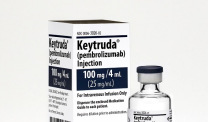Social Security Adds Pericardial Mesothelioma to Disabilities List
Treatment & DoctorsWritten by Tim Povtak | Edited By Walter Pacheco

The U.S. Social Security Administration has added pericardial mesothelioma to its Compassionate Allowances list, accelerating the disabilities application process for this very rare cancer.
Its decision was prompted by the work of Missy Miller, medical outreach director at The Mesothelioma Center. She made the request with the Social Security disability office almost a year ago on behalf of a patient.
The Compassionate Allowances program is reserved for severe medical diseases and conditions that automatically meet Social Security standards for disability benefits. It cuts short the often drawn-out application process.
Both pleural mesothelioma and peritoneal mesothelioma, more common forms of the cancer, have been part of the program for years, but pericardial mesothelioma was never included – until now.
“This is huge, a really big deal for these patients,” Miller said. “I’m humbled, and very excited, by what we’ve done. I was assisting a single patient in this case, but we’ve now helped patients everywhere.”
Highlighting Pericardial Mesothelioma
Pericardial mesothelioma is a rare, asbestos-related cancer that originates in the pericardium, the protective membrane lining the heart. It accounts for just 1% of all mesothelioma cases in the U.S., which is estimated at 3,000 patients annually.
Because clinical symptoms of mesothelioma are usually nonspecific, the diagnosis often comes late in disease development when treatment is only palliative. The diagnosis sometimes doesn’t come until an autopsy. Patients most often die within six months of diagnosis, a period in which a typical disability claim may still be pending.
On behalf of her patient – a 32-year-old woman being treated at the Baylor College of Medicine Lung Institute – Miller questioned why pericardial mesothelioma was not part of the Compassionate Allowances program. To support her case, she used documentation from the Asbestos.com website and the National Institutes of Health.
“I think the reason it wasn’t listed before was because it is so rare, and very hard to diagnose,” Miller said. “They probably never had anyone apply for it or ask for it to be listed.”
She was told soon after her request that the submission would receive a comprehensive review by the Social Security Administration’s medical consultants and policy analysts.
On the morning of Aug. 16, the day the announcement was made, Miller received a personal email from Social Security officials:
“Thank you for submitting Pericardial Mesothelioma for consideration as a Compassionate Allowances (CAL) condition. We are pleased to inform you that we have added Pericardial Mesothelioma to the list of CAL conditions.”
Helping Patients Through The Mesothelioma Center
Miller has been providing mesothelioma patients with medical, financial and emotional support for more than a decade, but typically on an individual basis. This time, she helped many patients at once, pioneering an advancement for all.
“When we submitted our request, I wasn’t sure what we’d hear back,” she said. “We’ve always worked hard to get the best for each patient. And that hard work really paid off this time. This designation changes a lot.”
Disability benefits for diseases in the Compassionate Allowances program are awarded on medical confirmation of the diagnosis alone, unlike less-serious conditions. More than 700,000 Americans have been approved through this accelerated process.
For many, the designation also provides for immediate, much-needed government-assisted health insurance.
Pericardial mesothelioma was one of 12 new conditions approved this week. Among the others were Charlevoix-Saguenay spastic ataxia, choroid plexus carcinoma, refractory Hodgkin lymphoma and congenital Zika syndrome. There are now 254 conditions on the list.
“Our Compassionate Allowances program helps us address barriers by helping accelerate the disability applications process for people who are likely to get approved for benefits, due to the severity of their medical condition,” said Kilolo Kijakazi, Social Security acting commissioner, in the announcement. “Everyone who is eligible for benefits under the programs we administer should receive them.”






